How much do you know about world history? Even if you’re pretty well-read on the subject, you may not be familiar with some of the events presented in these 10 books, which cover the history of everything from pirates to dirt, secret societies to stars, taking unlikely looks at major shifts in thinking, politics, industry, economics, science, and more, from perspectives that you may never have considered.
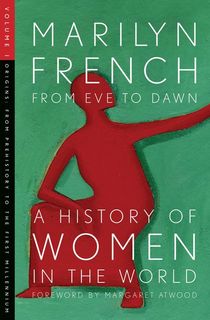
From Eve to Dawn: A History of Women in the World Volume I
From the internationally celebrated New York Times-bestselling author of The Women’s Room comes this “significant addition to literature on women’s studies and history” that backs up even its most controversial theories “with an impressive accumulation of academically accepted historical, anthropological and sociological sources” (Publishers Weekly).
The result of more than 15 years spent studying the roots of human civilization and the roles that women have played throughout history, this far-reaching and “consistently thought-provoking” (New York Review of Books) history of the world may just change how you think – however that may be.
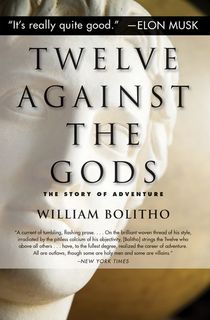
Twelve Against the Gods
Why settle for one biography when you can have twelve? That seems to have been the thinking of William Bolitho when he released this instant bestseller back in 1929.
Tackling the lives of a dozen “great men” (and women) from throughout history in his journalistic style, Bolitho argues that these individuals stood out from the pack in part due to their spirit of adventure, a spirit that, he says, should never die out. Read it yourself and see why it continues to resonate with some of the leading voices of the modern day.
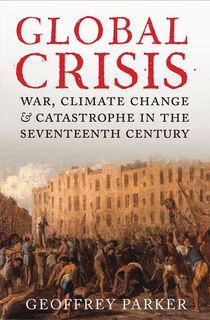
Global Crisis
It’s known as the “General Crisis” – a period of global conflict and social unrest that seemed to occur all over the world throughout the seventeenth century. While some historians debate the accuracy or utility of such a world view, others ask, “What caused it?” In this meticulously researched volume, acclaimed historian Geoffrey Parker posits one possible answer: climate change.
In arguments that not only bring the unrest and devastation of the 1600s into sharp relief, but also position them as immediately relevant to our current global situation, Parker argues that changing climate conditions led to droughts, famines, and other catastrophes that precipitated massive political and social change all over the world.
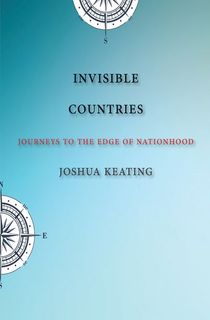
Invisible Countries
Countries are one of those things that we seldom really take a step back and think about. Of course, we know what a country is, and what separates one from another. And yet, in this eye-opening book, journalist Joshua Keating asks us to take another look at that assumption, by exploring several would-be nations that exist in a liminal space that is not quite what we would normally think of as a country, including semi-autonomous nations and a Mohawk reservation straddling the border between the U.S. and Canada.
Without a single, unified body to determine just what constitutes a country and what doesn’t, what is the future of these “invisible countries,” and what does it mean for all of us throughout the world?
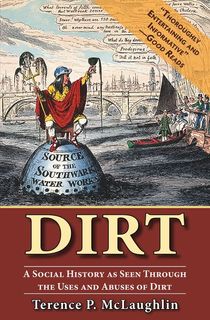
Dirt
Speaking of things that we don’t often think much about, this is a history book about dirt. Terence McLaughlin thinks a lot about it, though. As a public health and hygiene expert, McLaughlin has put together this “thoroughly entertaining and informative” (Good Reads) volume exploring social ideas about dirt and cleanliness.
Throughout the ages, what we think of as filthy – or clean – changes as social conditions shape us, and our own ideas about hygiene shape our environment. From the Old Testament to the present day, odds are you’ll never look at dirt the same way again.
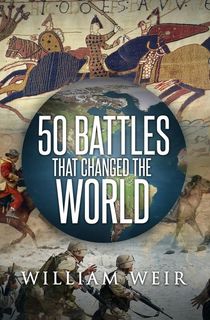
50 Battles That Changed the World
It’s not unusual for history to focus on wars and battles. They tend to give shape to our nations and provide defining moments in global history. But which conflicts have had the greatest impact on global history – and why?
These are the questions that William Weir sets out to answer in this wide-ranging book that ranks battles from the ancient past to recent history based on how much their outcomes, tactics, and situations shaped the present-day world that we all inhabit today.
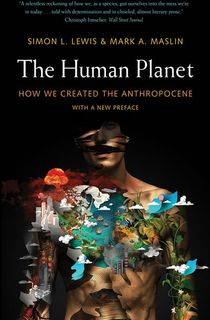
The Human Planet
For billions of years, the Earth has been shaped by geologic and environmental forces. Now, for the first time, there is another force at work: humans.
In this “relentless reckoning of how we, as a species, got ourselves into the mess we’re in today” (The Wall Street Journal), two scientists explore the social, philosophical, political, and scientific underpinnings of the idea of the Anthropocene, and what it means to be the first species to have a major impact on the shape and state of the planet itself. How did we get here – and what does it mean for our future?

Pirates
Few things in the history of the world have been as romanticized – or as misunderstood – as pirates. One need not look deep into history for examples. The comparatively recent success of the Pirates of the Caribbean film franchise is right there waiting.
In this global history from Yale University Press, however, author Peter Lehr pulls aside many of the myths and misconceptions to give a thorough accounting of what life was like on the high seas, especially for those who flew the black flag – or their equivalents all over the world and throughout history, from Vikings to modern-day Somali pirates.

The Secret History of the World
The Daily Mail called this New York Times bestseller “the most controversial book of the year,” and it’s not hard to see why. Departing from a perilous premise, Mark Booth examines not one but many alternate histories of the world – those claimed by a variety of secret societies, cults, and mystical traditions. From ancient mythology and religious lore to societies like the Freemasons, Booth asks what it is that these “alternative” thinkers may know that we’ve been ignoring all this time, and in so doing, may just shake our understanding of history to its foundations.
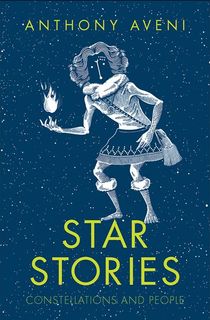
Star Stories
At one time or another, we’ve all looked up at the shining stars of the night sky, and imagined what we could see there. We’ve probably also tried to pick out the constellations with which we grew up, and wondered who the heck named them, and why.
In this fascinating new look at the heavens, Anthony Aveni takes us on a tour not only of the constellations with which we are familiar, but similar “star stories” from cultures all around the globe and throughout history, showing us how similar – and how different – we all are when we look up at the night sky.
